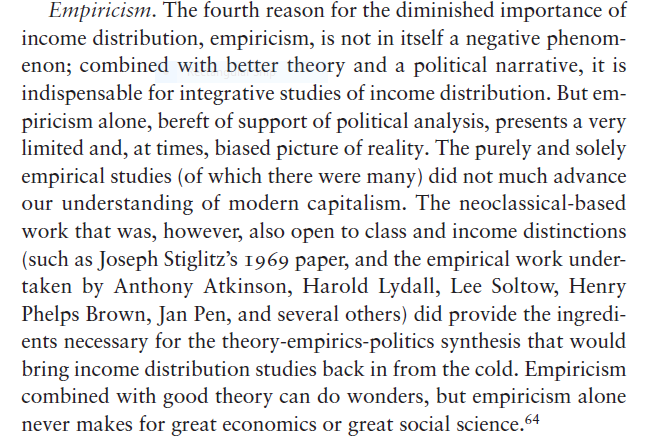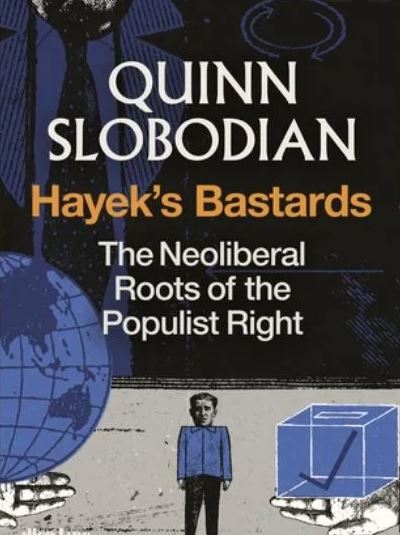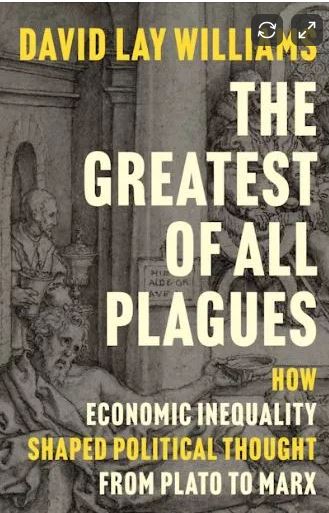It is I think wrong to interpret Friedman's essay on shareholding capitalism in normative terms: is profit-maximization a "nice" policy or not.
It should be interpreted as the statement of the obvious: capitalists are not going to sacrifice their profits. Period.
It should be interpreted as the statement of the obvious: capitalists are not going to sacrifice their profits. Period.
They are not going to give up a penny. We see that every day. They might do some virtue-signaling but only if gains from it are greater than the costs.
Marx would have fully agreed with Friedman.
Marx would have fully agreed with Friedman.
Accepting that Friedman was right (as he was) has strong implications for economic policy.
If you want businesses to pay for something or to do something, you tax them or regulate them. You do not expect they would do things because of their "civic duty".
If you want businesses to pay for something or to do something, you tax them or regulate them. You do not expect they would do things because of their "civic duty".
If you want businesses to pay for something or to do something, you tax them or regulate them. You do not expect them to do things because of their "civic duty".
• • •
Missing some Tweet in this thread? You can try to
force a refresh








